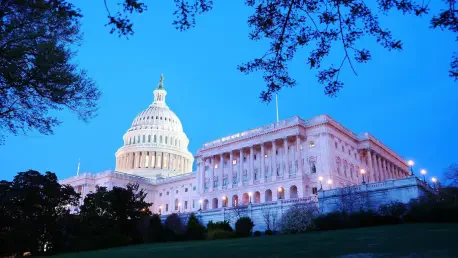In the wake of their defeat in the 2024 presidential election, the Democratic Party stands at a pivotal crossroads, grappling with eroded credibility and dwindling voter support. The party faces an urgent need to reassess and reorient itself in an ever-evolving political landscape. As voter preferences shift and demographics continue to change, this analysis delves into the obstacles and opportunities the Democrats encounter while attempting to regain political momentum.
Examining Historical Trajectories and Strategic Shifts
Since the early 2000s, the Democratic Party’s journey has been marked by several strategic adjustments that have shaped its electoral fortunes. Shifting from progressive roots to more centrist policies, the party has navigated complex socio-political changes, notably influenced by the rise of the digital era. These shifts underscore the necessity for the Democrats to attune their strategies to present socio-political climates, ensuring alignment with the current priorities of the electorate.
Understanding Voter Disconnect and Economic Messaging
Addressing Working-Class Disillusionment
A notable cause of the Democrats’ current struggles is a perceived disconnect with working-class voters, particularly white and Hispanic men. Polls illustrate diminishing support within these key demographics, historically vital to the party’s base. Overcoming critiques of being “out of touch” requires the party to reassess its economic messaging, ensuring policies resonate with these communities and reflect genuine engagement rather than abstract rhetoric.
The Impact of Donor and Bundler Disenchantment
Moving beyond voter analysis, Democratic donors and bundlers exhibit notable disillusionment, questioning the party’s direction and holding back financial contributions. To counter this, clearer visions and inspirational leadership are deemed essential to rejuvenate enthusiasm among both grassroots supporters and financial backers. Renewed economic focus becomes a linchpin in rebuilding trust across diverse voter blocs.
Navigating Regional Disparities in Preferences
The Democratic Party’s pursuit of support renewal is complicated by regional polling disparities. Preferences vary significantly across states, reflecting contrasting attitudes toward leadership centralized in Washington versus localized policies prioritized within state contexts. Democratic strategists suggest fresh methodologies and emerging voices could successfully engage urban, suburban, and rural voters more authentically, countering misconceptions regarding uniform national agendas.
Projections for Future Electoral Strategies
Entering another electoral cycle, Democrats must adapt to emerging trends shaped by technological innovation and shifting economic landscapes. Potential regulatory developments require adaptable policy-building to maintain competitiveness and relevance with evolving voter priorities. Experts suggest a transition toward decentralized, grassroots initiatives, leveraging technological advancements to forge deeper connections with voters.
Key Takeaways and Strategic Recommendations
Focusing on economic growth, healthcare, and pragmatic communication emerges as a priority for Democrats seeking to resonate with voter concerns effectively. Cultivating leaders who deviate from Washington norms while fostering new voices encourages direct communication and addresses voter needs pragmatically. Participation at the grassroots level serves as a transformative force, ensuring strategies remain aligned with electoral aspirations for tangible achievements.
Conclusion: Charting a Course for Democratic Renewal
The analysis highlighted the ongoing necessity for the Democratic Party to adjust itself in line with shifting voter priorities and emerging economic challenges. Effective appeals to leadership and distinct policy directives remain crucial. This topic’s overarching significance lies in its power to redefine Democratic political strategy, poised to transform future elections into conversations focused on growth and genuine alignment with national needs. Embracing actionable changes offers the party pathways to overcoming its current challenges and reshaping political dialogue.









